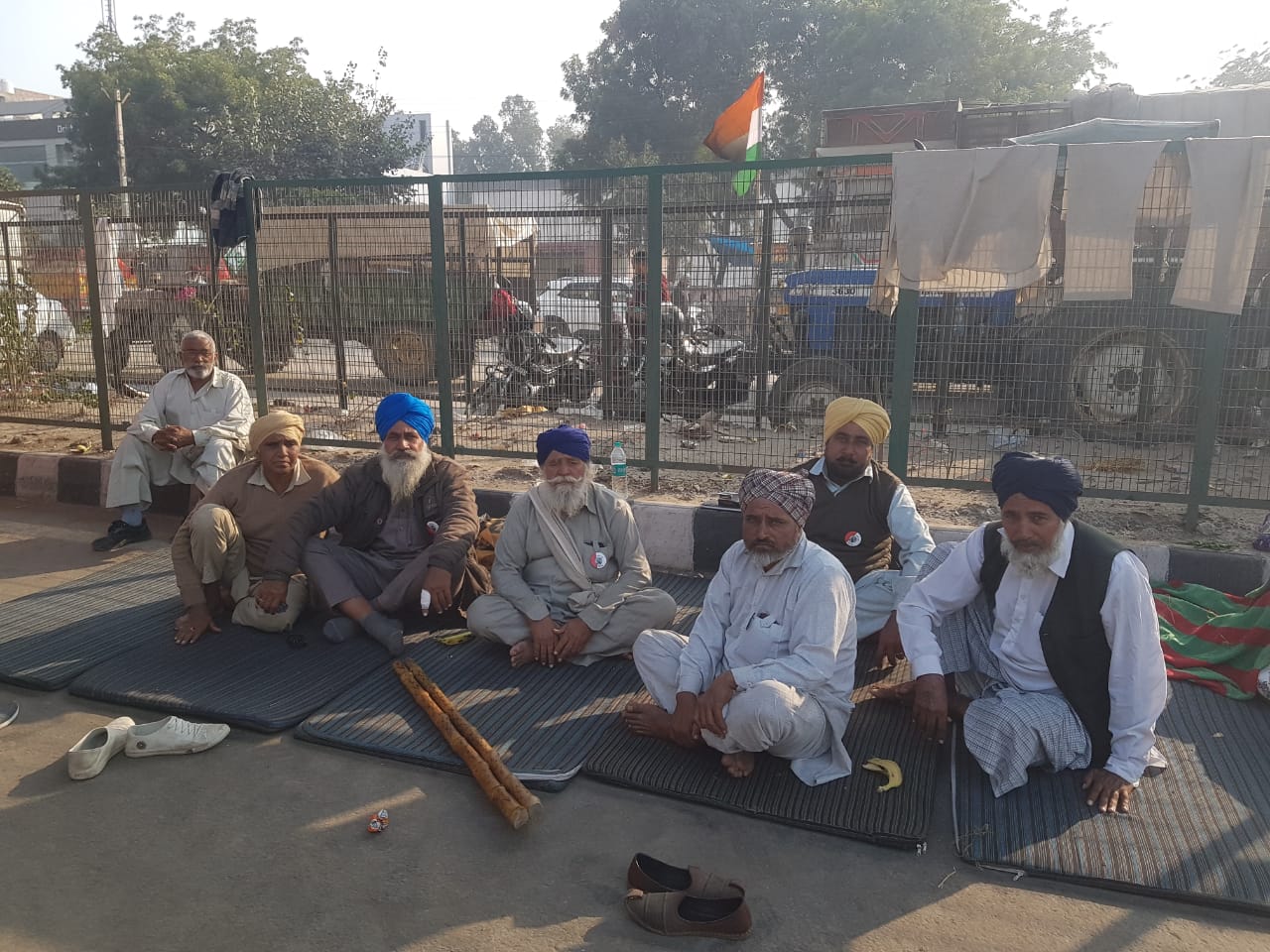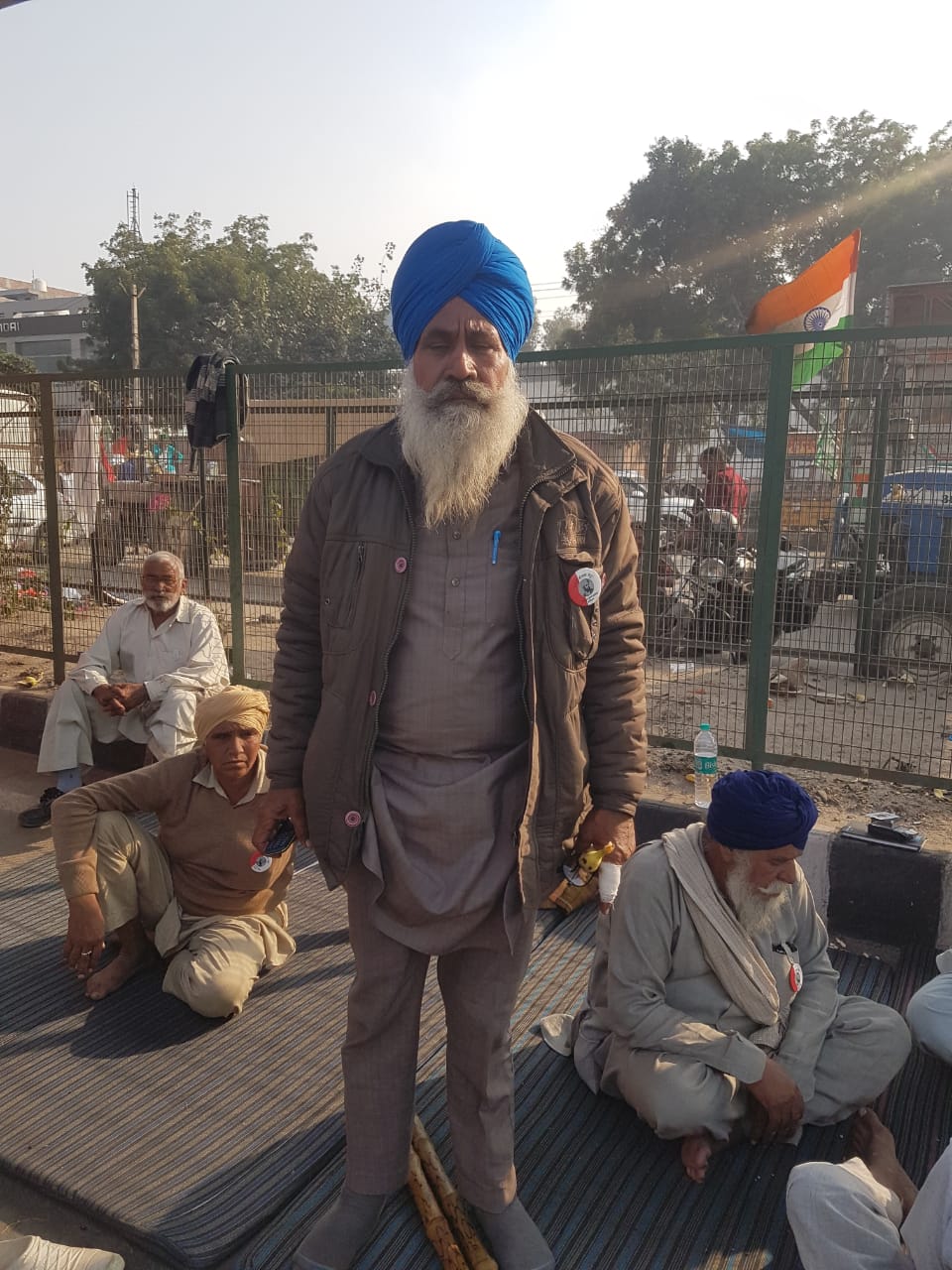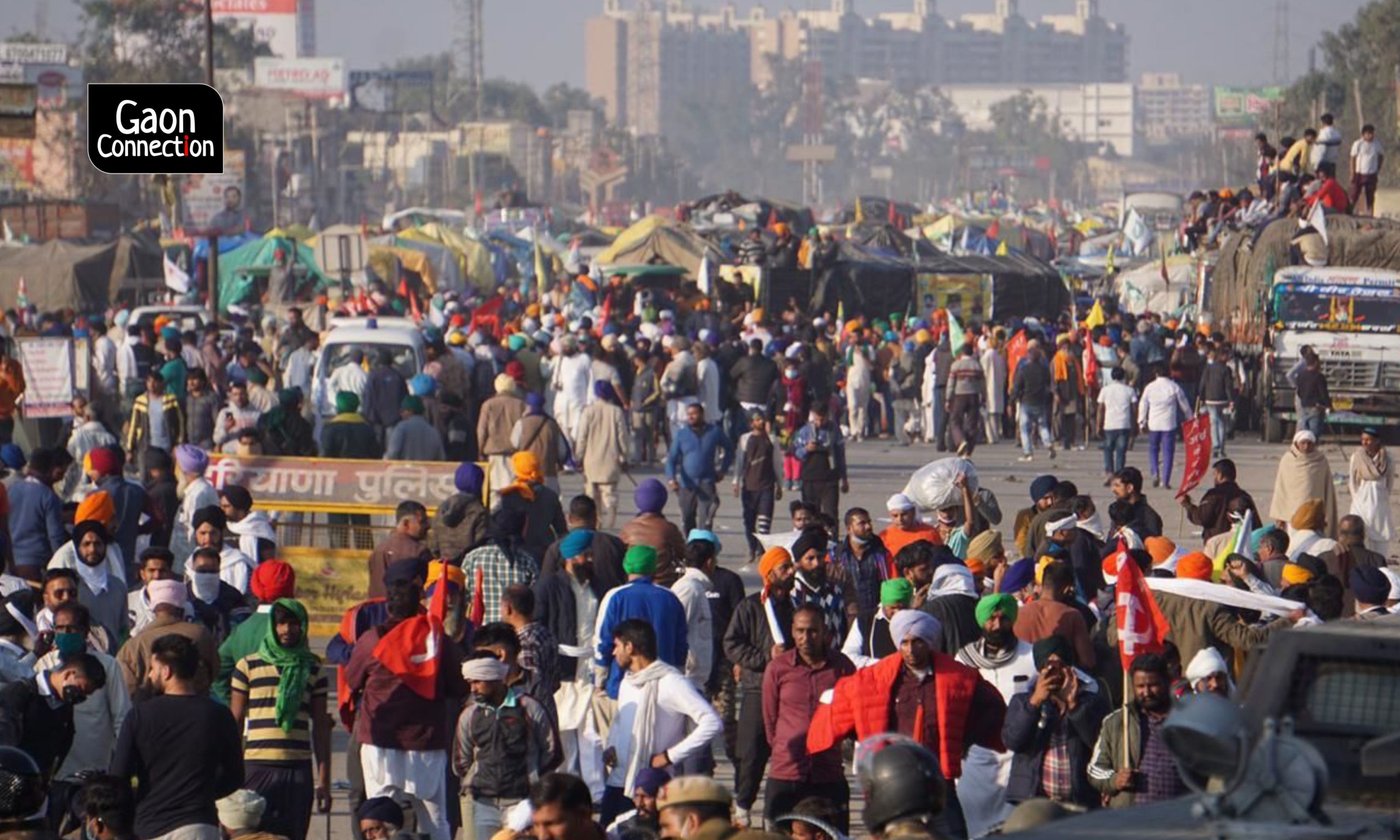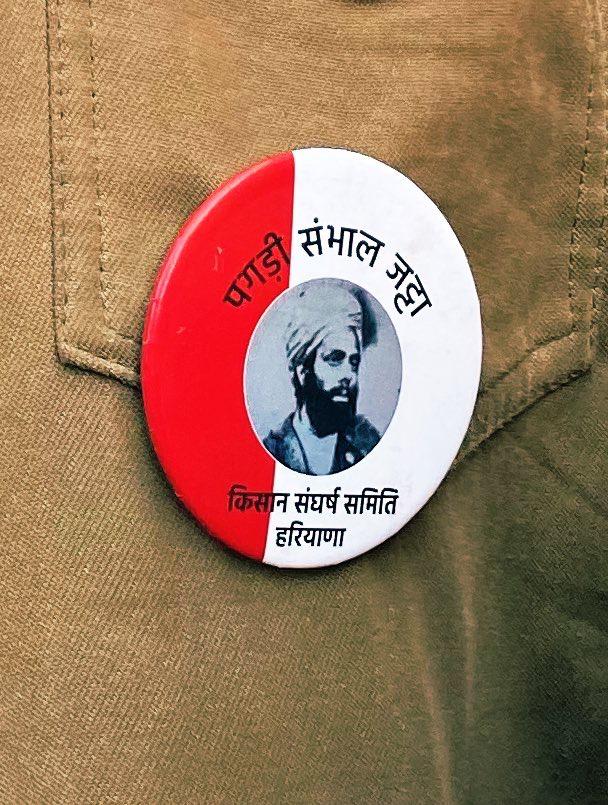Dialogue And Dissent: All eyes trained on tomorrow’s meeting between the central government and the protesting farmers. Will the impasse end?
The second round of talks between farmer leaders and the central government yesterday was inconclusive. Will the third round tomorrow on December 3 find a way out of the agri laws crisis?


While thousands of farmers entered Delhi, thousands more preferred to pitch camp on the borders leading to the capital. Photo: All India Students Association
Standing at the Tikri border, between Haryana and Delhi, one sees trolleys and trucks as far as the eyes can go. “Rohtak is seventy kilometres from here and there are trucks lined up till there, back-to-back,” Labh Singh, a paddy and wheat farmer from Udaypur village, Jakhal tehsil, Fatehabad district, Haryana, informed Gaon Connection.
The 55-year-old farmer has travelled more than 200 kilometres from his village to the Delhi-Haryana border in solidarity with protesting farmers who want the three new agri-laws recast. He, along with 20 other fellow farmers, left their village at nine in the night on November 25 in two trolleys, and reached Tikri early on the morning of November 27, he said. “The number of farmers gathered here are not in thousands but in lakhs,” said Labh Singh who owns 13 acres of agricultural land in his village of 650 people.

The farmers have blocked most of the entry points into Delhi, and await the outcome of the dialogue with the Central government. At the Singhu border, an elderly Sikh is grinding masala, as he sings a kirtan. There is also music and dance. Shabads and kirtans are being sung and younger people are playing cards to keep themselves busy. There is langar. It is obvious that they are there to stay a while.
There are entire families who have undertaken the long arduous journey. From really young children to 80 and 90-year olds, they have turned up to ‘save their lands for their future generations’.
Faces of revolutionaries stare steadfastly out of banners. Punjab’s Jamhuri Kisan Sabha has Sardar Ajit Singh on its banner. He was the revolutionary Bhagat Singh’s uncle and had led the 1907 peasants’ uprising against agrarian laws passed by the British. Amandeep Sandhu writes about this uprising in his book Panjab: Journeys Through Faultlines.
For the past one week, wave upon wave of farmers, a majority of them from Haryana and Punjab and some from Uttar Pradesh and Rajasthan, have converged towards the national capital Delhi to demand the central government roll back the three agri laws that were passed in September this year. While thousands of farmers entered Delhi, thousands more preferred to pitch camp on the borders leading to the capital.

The awaited talks with the Central government started yesterday on December 1 at around 3 pm, at Hall no 2 at Vigyan Bhavan in Rajpath, New Delhi. The dialogue began between the representative farmers (more than 30 farmer-leaders were present), and the central government, represented by Narendra Singh Tomar, Union minister of agriculture and farmer welfare, rural development and panchayat raj; Piyush Goyal, Union railways and commerce minister; and Som Prakash, minister of state for commerce. The meeting that began at around 3 pm continued for four hours.
The central government proposed a five-member committee be set up with agrarian experts, farmer leaders and representatives of the government, to re-examine the contentious agri laws. However, the idea of forming a committee found no favour with the farmers’ representatives. “Such committees in the past had been of no help, and setting one up now would be of little consequence,” Harpal Singh Sangha, one of the members of the farmers’ delegation, told Gaon Connection.
The meeting on December 1, turned out to be a stalemate. However, channels of communication were kept open, with both sides showing willingness to continue discussions. Another meeting is scheduled for noon tomorrow, before which the government has asked the protesting farmers to come prepared with a detailed brief on their specific objections to the agri-laws.
Agriculture minister Narendra Tomar tweeted that the meeting was cordial and the government was fully sensible to the farmers’ demands and would deal with the issues sympathetically.
The dialogue was not without its lighter moments. When the agriculture minister offered the farmers tea during the meeting, they responded by extending an invitation to him to visit their protest sites. “We promised to serve him pakodas and jalebis along with tea, made at fully functional langars,” Kulwant Singh Sandhu of the Jamhuri Kisan Sabha said.
Meanwhile, the farmers who have picketed the borders are pragmatic about the outcome of tomorrow’s meeting. “Yesterday’s talks were inconclusive. And we don’t expect any miracles tomorrow either. But we live on hope,” Labh Singh said. But, neither he nor his fellow farmers have any intention of returning to their villages. “We are equipped to stay here for a year, if need be,” he said.
“The negotiations are going on, but the protests will continue, even more vigorously,” Kaka, another farmer leader, told Gaon Connection. In the distance played the very same song Sardar Ajit Singh had sung in 1907 at a farmers’ rally in Lyallpur (now in Pakistan), Paghri Sambhal Jatta.

With inputs from Amit Pandey, New Delhi.

